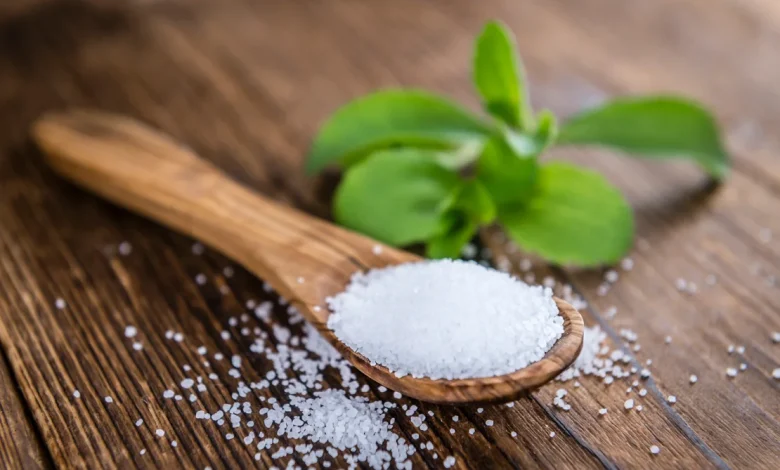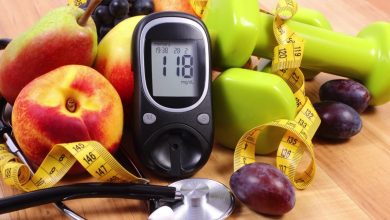Zero calorie sweetener linked to blood clots and risk of heart disease, study finds

CNN — A recent pilot study found that drinking a beverage containing erythritol, an artificial sweetener used to bulk up stevia and monk fruit as well as to sweeten low-carb keto goods, more than doubled the risk of blood clotting in ten healthy participants.
Clots have the ability to rupture blood arteries and move to the brain, where they can cause a stroke, or the heart, where they can cause a heart attack. Erythritol has been associated in the past with an increased risk of stroke, heart attack, and mortality.
“It is astounding that after ingesting erythritol, all subjects showed increases in platelet responsiveness, or clotting,” stated Dr. Stanley Hazen, the primary study author and director of the Cleveland Clinic Lerner Research Institute’s Centre for Cardiovascular Diagnostics and Prevention.
Drinking a beverage with the same amount of glucose, or sugar, had no effect on blood platelet activity in a different group of ten individuals, according to Hazen, the Cleveland Clinic’s Jan Bleeksma chair in vascular cell biology and atherosclerosis.
“This is the first direct head-to-head comparison of how eating erythritol versus glucose affects several different measures of platelet function,” according to Hazen. “Erythritol affects clotting; glucose does not.”
Dr. Andrew Freeman, head of cardiovascular prevention and wellness at National Jewish Health in Denver, called the study, despite its small size, “very intriguing and interesting.”
“This line of research definitely begs the question: Are these sugar alcohols safe or not? I’m not saying we need to stop using them immediately.” Freeman, who did not participate in the study, stated.
The business group Calorie Control Council responded to the report by telling CNN that erythritol is a “proven safe and effective choice” for reducing sugar and calories, citing 30 years of scientific evidence.
“Users should proceed with extreme caution when interpreting the outcomes of this pilot. The head of the council, Carla Saunders, wrote in an email that the 10 participants, who were in limited supply, were given an excessive amount of erythritol—nearly quadruple the maximum amount permitted in any single beverage in the United States.
But according to Hazen, the 30 grammes of erythritol that were utilised in each drink in the study was the same as what is typically found in ice cream, muffins, and sugar-free drinks, which people frequently consume in multiples.
In a statement, study coauthor Dr. Wai Hong Wilson Tang, research director for heart failure and cardiac transplantation at the Cleveland Clinic, said, “This research raises some concerns that a standard serving of an erythritol-sweetened food or beverage may acutely stimulate a direct clot-forming effect.”
What are sugar alcohols?
Erythritol is a sugar alcohol that occurs naturally in many fruits and vegetables, just like sorbitol and xylitol. Erythritol is also produced by the human body as a consequence of glucose metabolism, but in smaller amounts.
Erythritol, which is produced artificially in large numbers, doesn’t increase blood sugar, doesn’t leave an aftertaste, and has a milder laxative impact than certain other sugar alcohols. Experts estimate that it contains roughly 70% of the sweetness of sugar and has no calories.
According to Hazen, the main ingredient by weight in a lot of “natural” stevia and monk fruit products is erythritol. It can be used in baking and has a sugar-like appearance and flavour. According to Hazen, it is also a crucial component of many keto-friendly goods, including as ice cream.
“You’ll see terms like’reducing sugar’ or’sugar alcohol,’ which are terms for erythritol,’ if you look at nutrition labels on many keto ice creams,” he previously told CNN.
“A standard pint contains approximately 26 to 45 grammes of alcohol.”
The US Food and Drug Administration classifies artificially generated erythritol and its cousins as “generally recognised as safe,” or GRAS.
Series of studies show similar results
The new study required 20 volunteers to fast overnight in order to prepare for an early blood sample. It was published on Thursday in the journal Arteriosclerosis, Thrombosis, and Vascular Biology. After that, they were given a drink that included 30 grammes of sugar or 30 grammes of erythritol. Once more, blood was taken after 30 minutes.
After consuming one drink containing erythritol, blood levels of that chemical increased tenfold, although blood sugar levels just slightly increased. What was shocking, according to Hazen, was the shift in platelet activity.
“We observed enhanced clotting, which is similar to a model of a heart attack or stroke, using measures of how quickly clots will occlude a vessel or stop blood flow,” the researcher stated.
Hazen and colleagues’ 2023 trial had similar results, with eight healthy volunteers consuming the same amount of erythritol and experiencing a thousandfold increase in the substance’s levels in their blood.
For the next two to three days, Hazen stated, “(Erythritol) remained elevated above the threshold necessary to trigger and heighten clotting risk.”
The blood of almost 4,000 participants from both Europe and the United States was examined in that study, and it was discovered that individuals with the highest erythritol levels had a twice-fold increased risk of having a heart attack or stroke.
Erythritol causes platelets to become extremely sensitive; just 10% of a stimulant is needed to create 90% to 100% of a clot formation, according to Hazen.
The research was conducted on healthy individuals free of chronic illness, but according to Hazen, the study’s conclusions are still relevant today.
“But when you look at middle-aged Americans, 70 percent of us will get heart disease in our lifetime, and the average person has two to three risk factors for heart disease, so maybe we should all be thinking about taking action,” he stated.
Drinks and meals sweetened with sugar alcohols may not be as healthy as occasional small-portion indulgences sweetened with sugar when it comes to heart disease risk, he added. This is particularly true for people who are most vulnerable to blood clots, heart attacks, and strokes, such as those who have diabetes or pre-existing cardiac conditions.
He declared, “Heart disease is the leading cause of death worldwide, and cardiovascular disease builds over time.” “We must ensure that there are no unidentified contributors in the foods we eat.”




